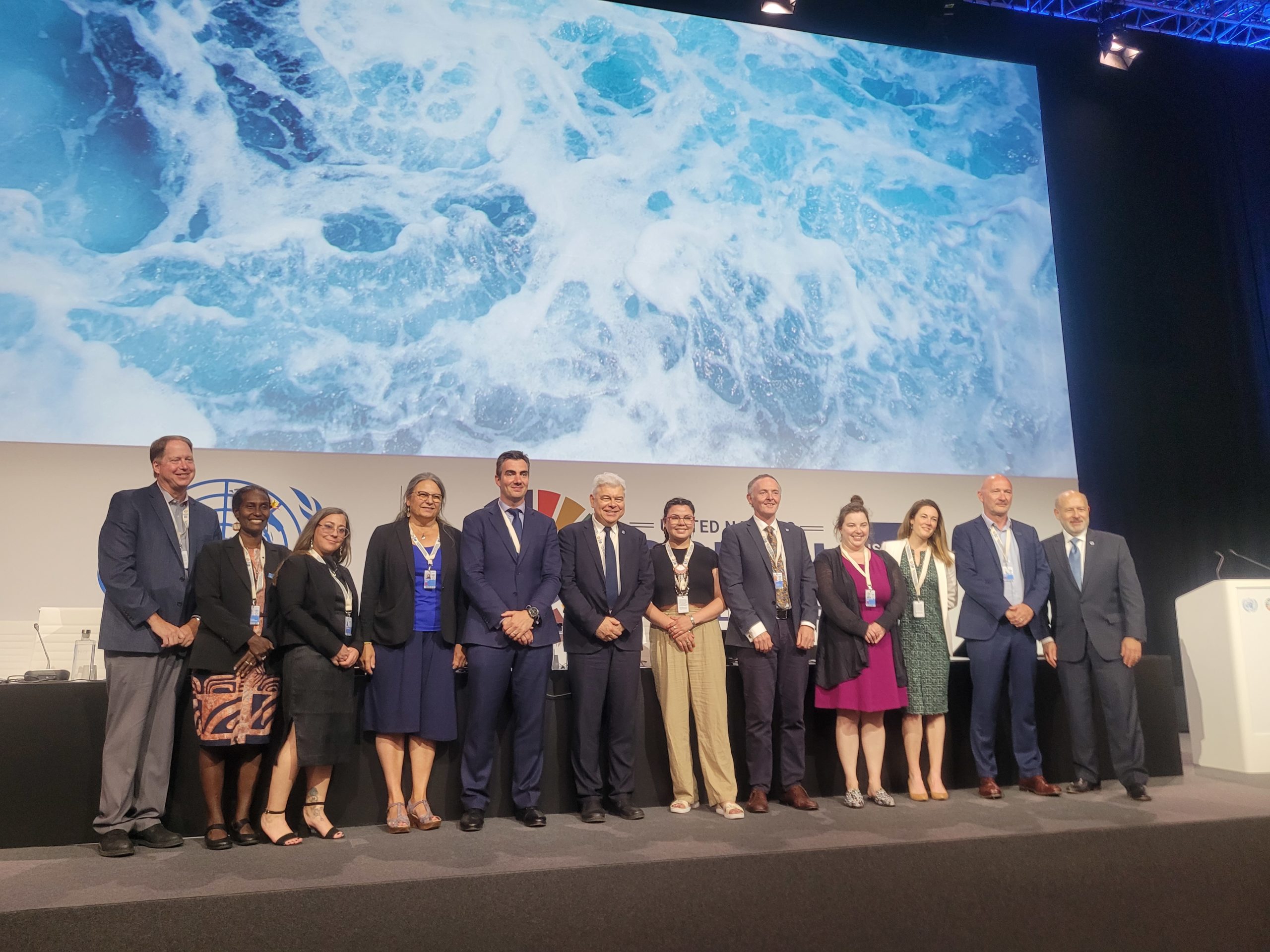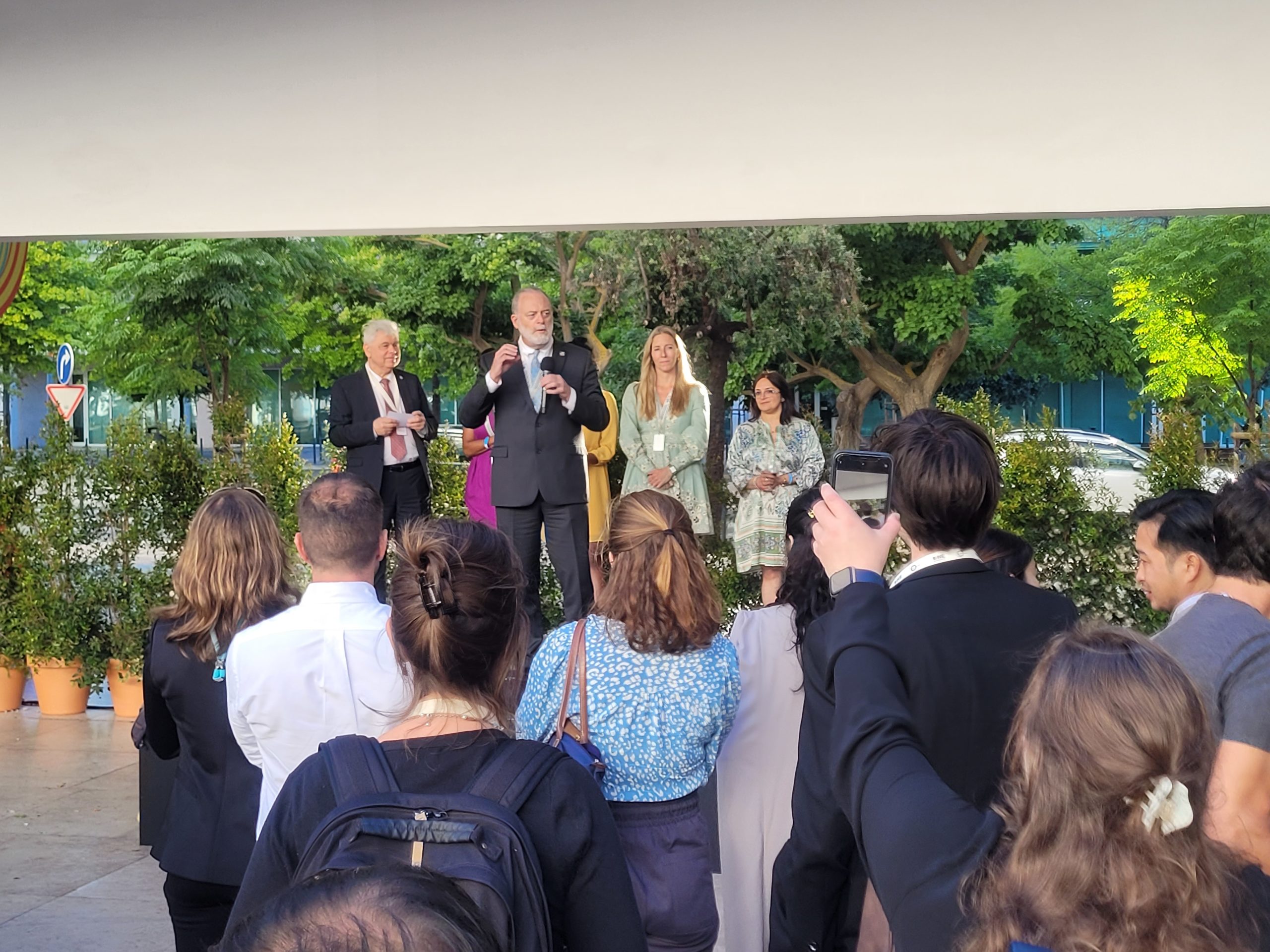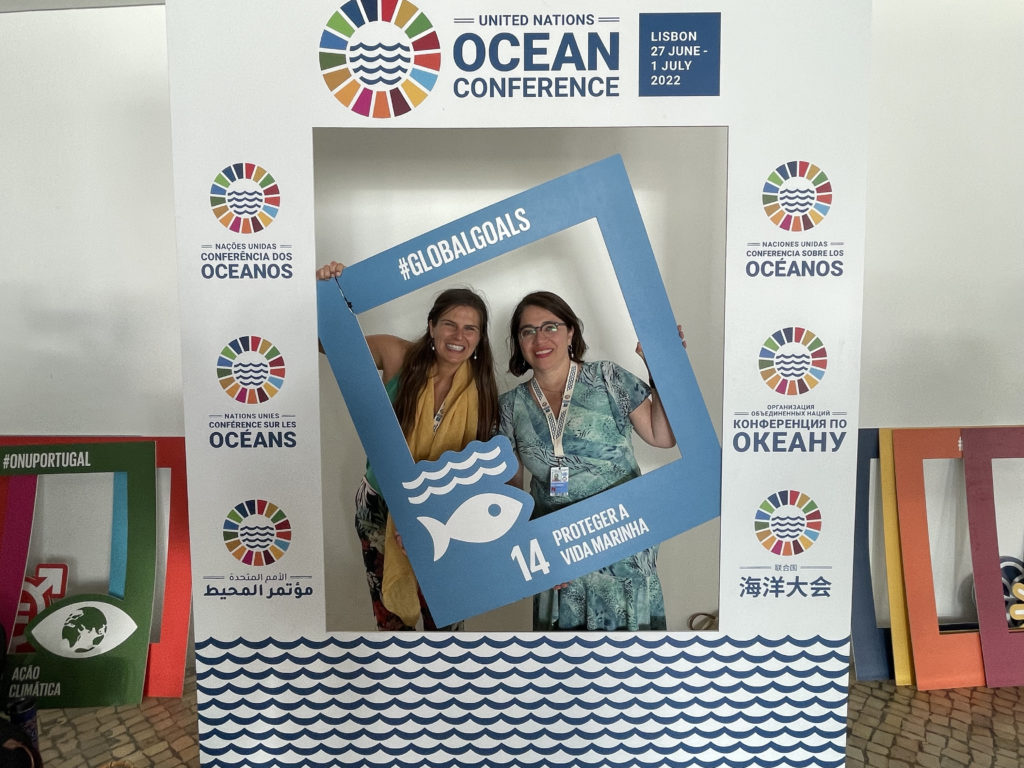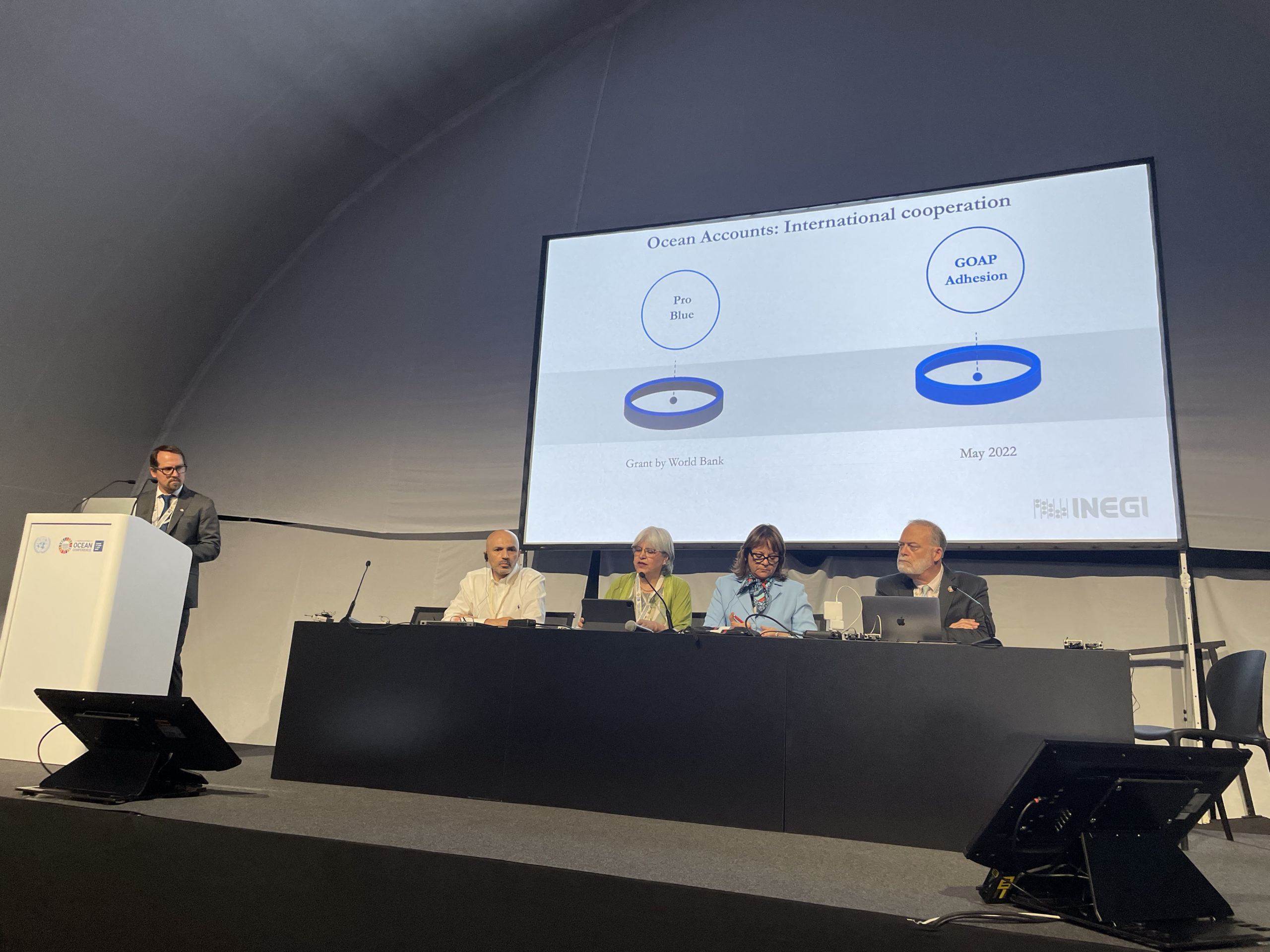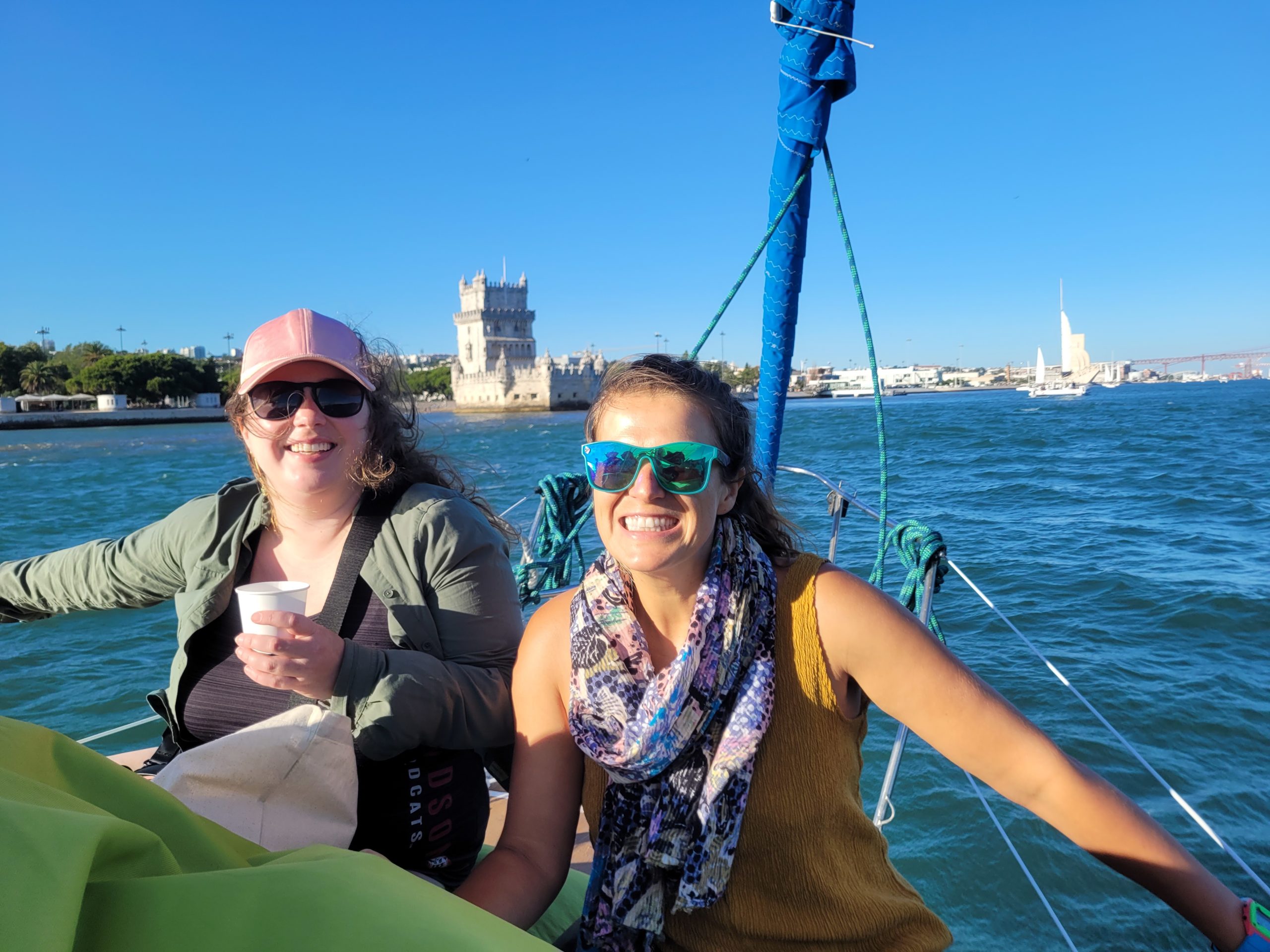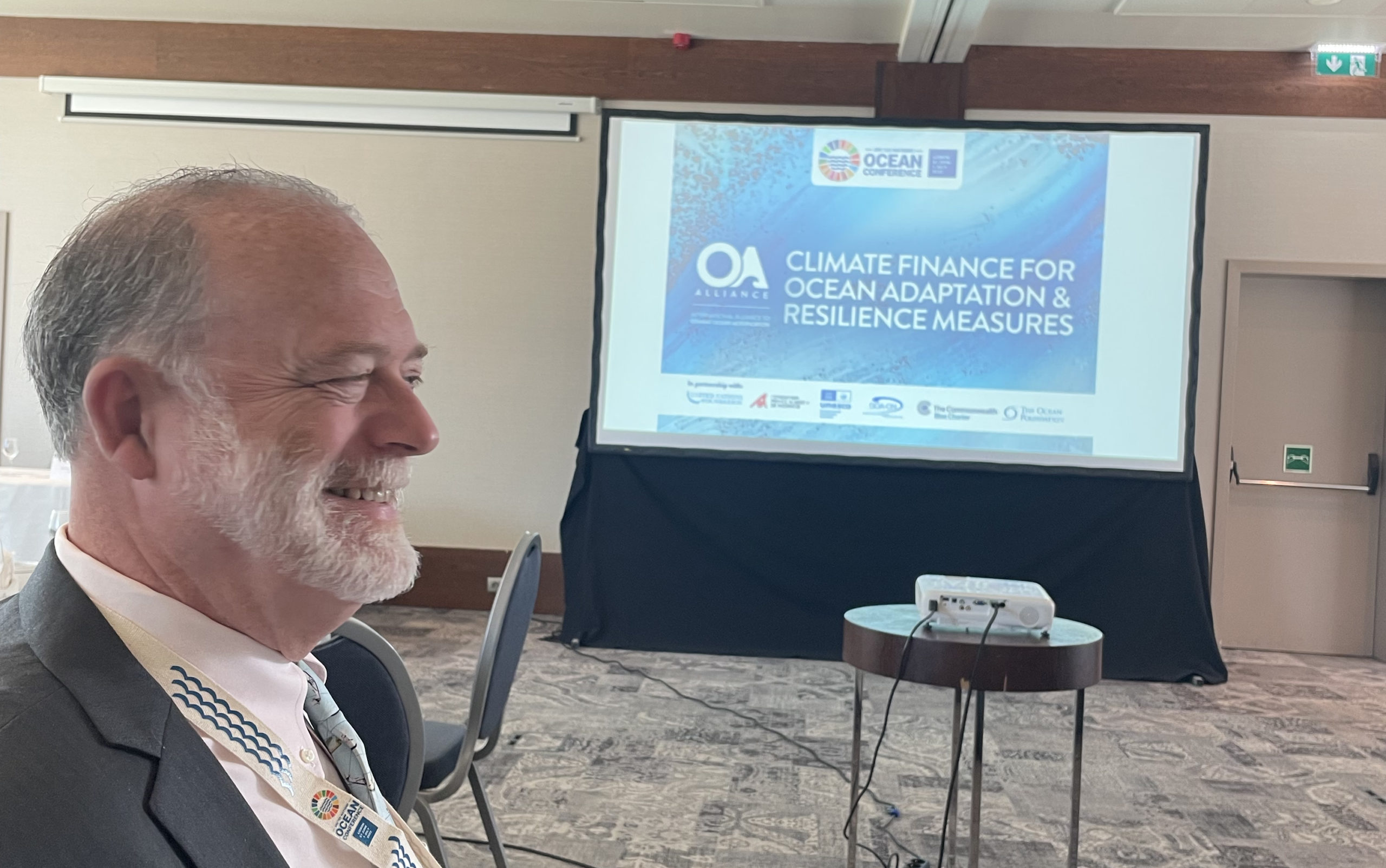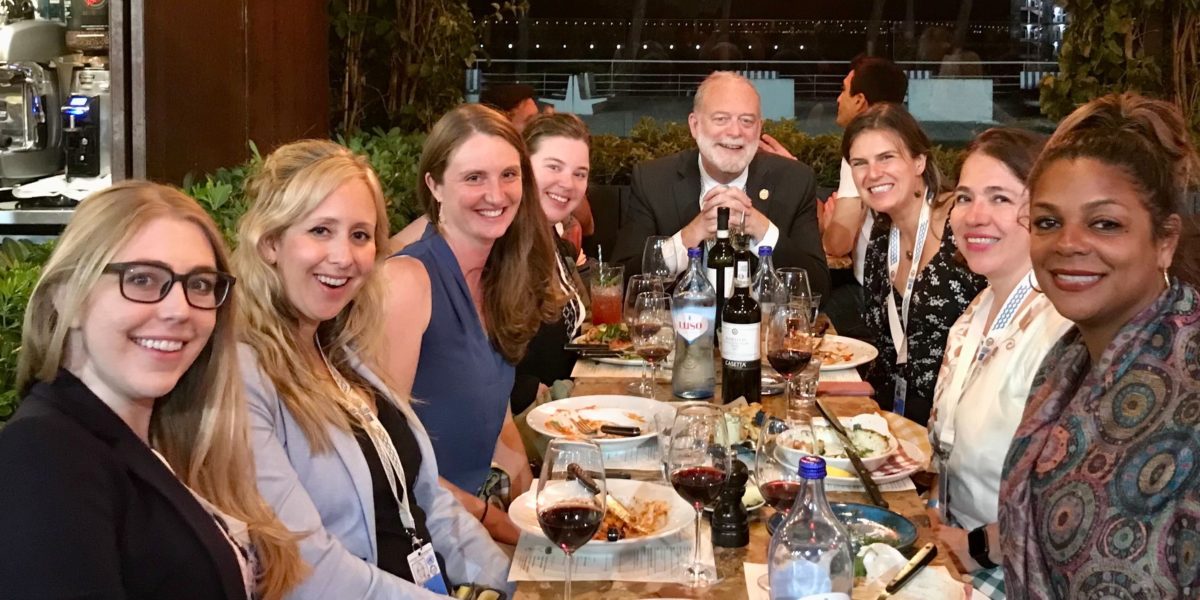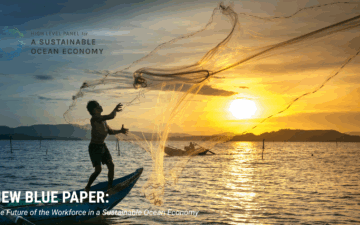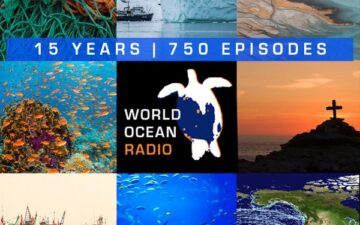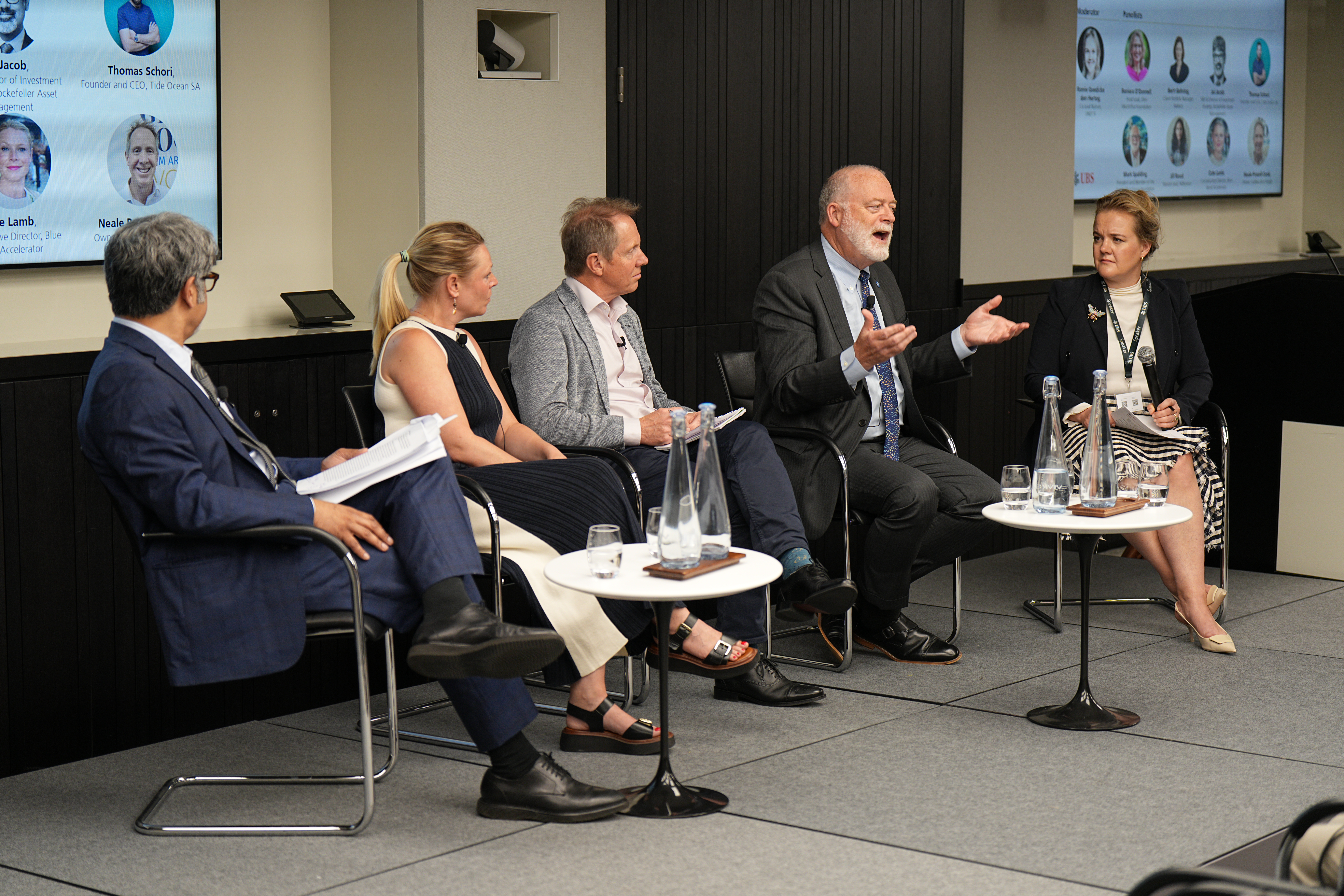Following a hiatus on in-person events since the start of the pandemic, the midpoint of the ‘year of the ocean’ was marked by the 2022 UN Ocean Conference in Lisbon, Portugal. With over 6,500 attendees representing nonprofits, private entities, governments, and other stakeholders all joining in five days packed with commitments, conversations, and conference events, The Ocean Foundation’s (TOF) delegation was prepared to present on and tackle a suite of important topics, ranging from plastics to global representation.
TOF’s own delegation reflected our diverse organization, with eight staff in attendance, covering a wide breadth of topics. Our delegation came prepared to address plastic pollution, blue carbon, ocean acidification, deep sea mining, equity in science, ocean literacy, ocean-climate nexus, blue economy, and ocean governance.
Our program team has had a chance to reflect on the partnerships that were forged, the global commitments that were made, and the incredible learning that took place from June 27 to July 1, 2022. Some of the highlights of TOF engagement at the conference are below.
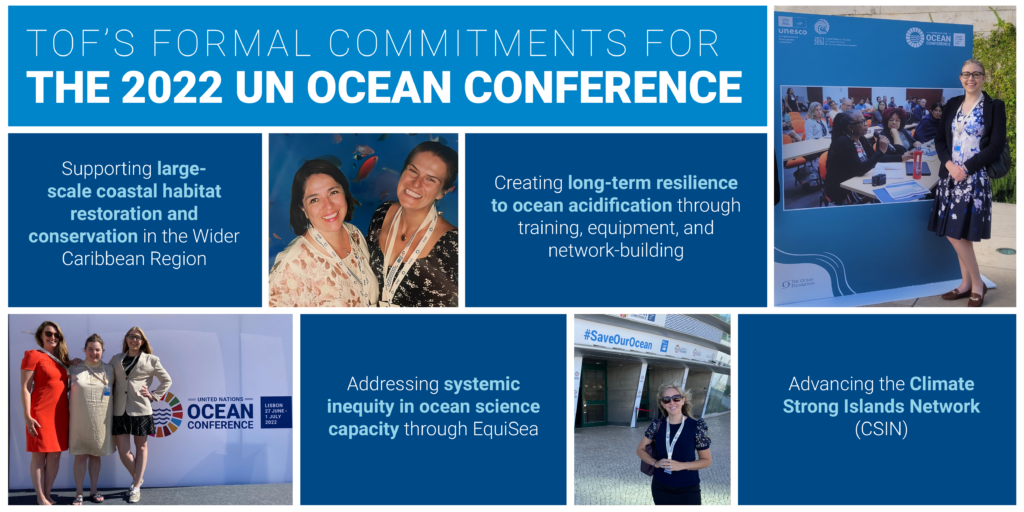
Ocean Science Capacity
Discussions about the capacity that is needed to carry out ocean science and take action on ocean issues were woven into conference events throughout the week. Our official side event, “Ocean Science Capacity as a Condition to Achieving SDG 14: Perspectives and Solutions,” was moderated by TOF Program Officer Alexis Valauri-Orton and featured a suite of panelists who shared their perspectives and recommendations to remove barriers that prevent equity in the ocean community. The U.S. Department of State’s Deputy Assistant Secretary for Oceans, Fisheries and Polar Affairs, Professor Maxine Burkett, provided inspiring opening remarks. And, Katy Soapi (The Pacific Community) and Henrik Enevoldsen (IOC-UNESCO) highlighted the importance of cultivating strong partnerships prior to delving into the work.
Dr. Enevoldsen stressed that you can never invest enough time in finding the right partners, while Dr. Soapi emphasized that the partnership then needs time to develop and form trust before the progress really starts. Dr. J.P. Walsh from the University of Rhode Island recommended building in time for fun into in-person activities, such as an ocean swim, to help catalyze those meaningful memories and relationships. The other panelists, TOF Program Officer Frances Lang and Damboia Cossa from Eduardo Mondlane University in Mozambique, emphasized the importance of bringing in the social sciences and taking account of the local context – including education, infrastructure, conditions, and access to technology – into capacity building.
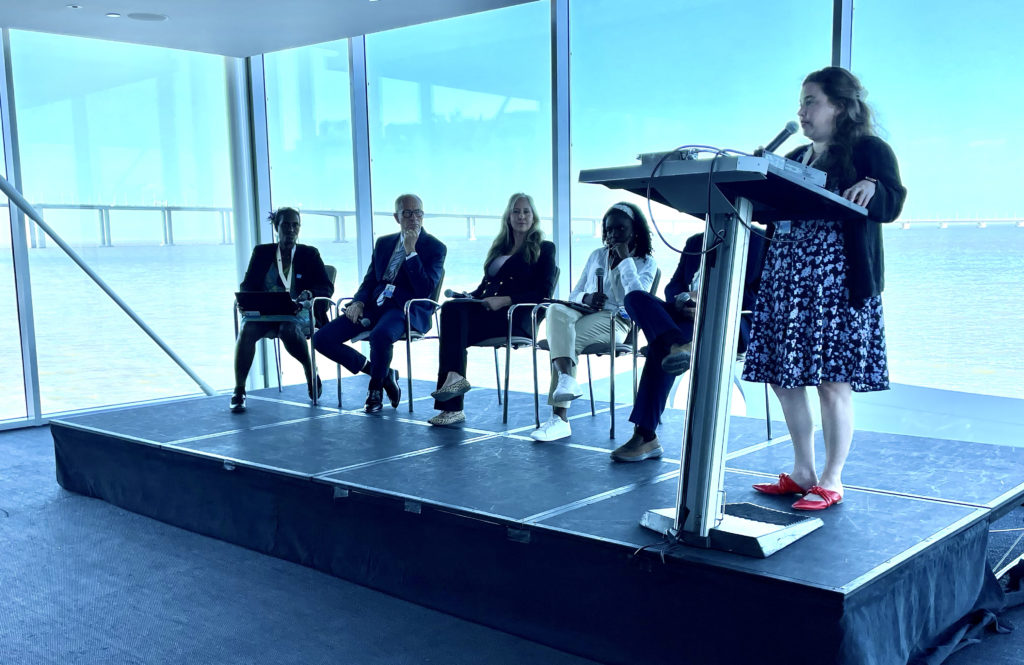
To further bolster support for ocean science capacity, TOF announced a new initiative to create a Funders Collaborative in support of the UN Decade of Ocean Science for Sustainable Development. Announced formally at the UN Ocean Decade Forum event, the collaborative aims to strengthen the Decade of Ocean Science by pooling funding and in-kind resources to support capacity development, communications, and co-design of ocean science. Founding members of the collaborative include the Lenfest Ocean Program of the Pew Charitable Trust, the Tula Foundation, REV Ocean, Fundação Grupo Boticário, and Schmidt Ocean Institute.
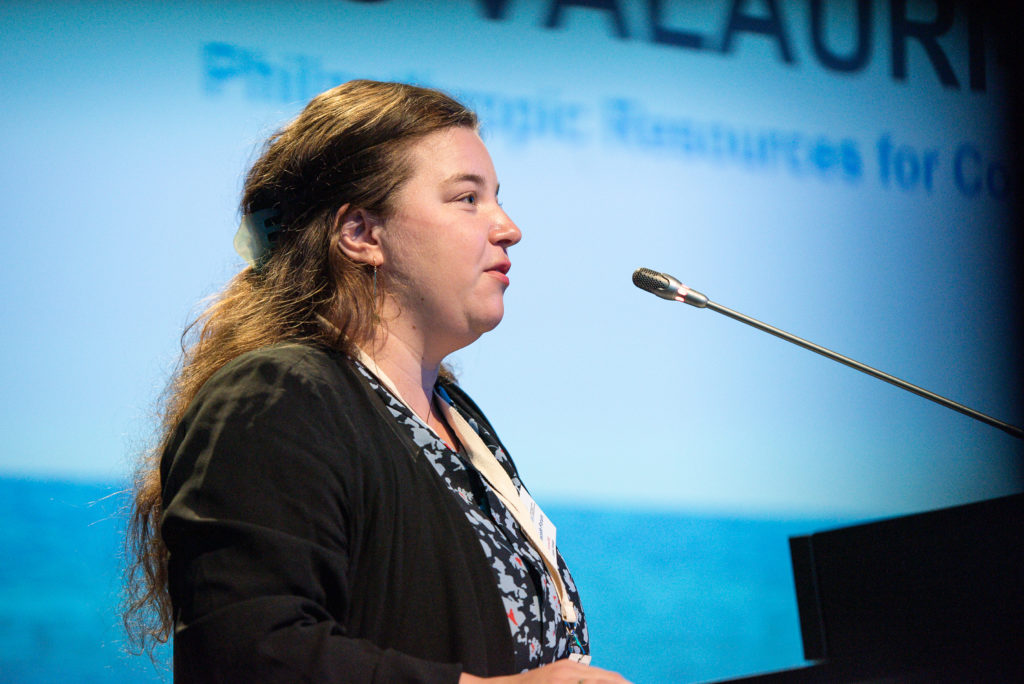
Our President, Mark J. Spalding, was invited by the Governments of Spain and Mexico to speak on how ocean observing data is critical for coastal resilience and a sustainable blue economy as part of an official side event on “Science towards a sustainable ocean”.
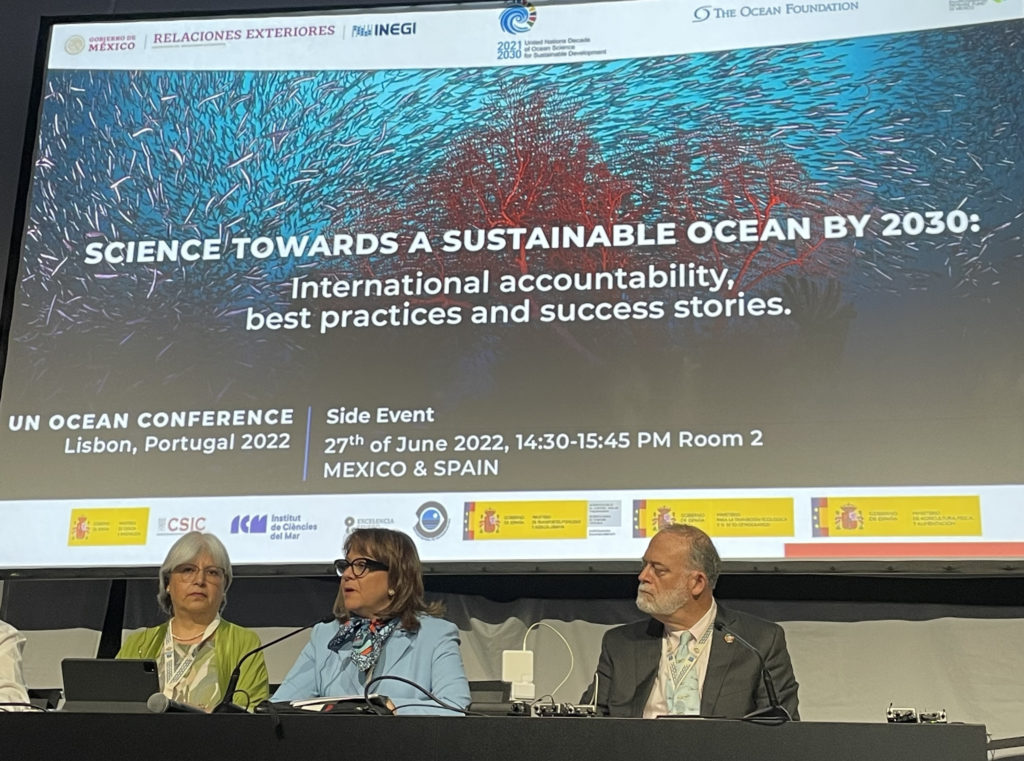
Deep Seabed Mining Moratorium
Clear concerns regarding deep seabed mining (DSM) were raised throughout the conference. TOF engaged in support of a moratorium (a temporary prohibition) unless and until DSM could proceed without harm to the marine environment, loss of biodiversity, threat to our tangible and intangible cultural heritage, or danger to ecosystem services.
TOF staff were present at more than a dozen DSM related events, from intimate discussions, to official Interactive Dialogues, to a mobile dance party urging us to #lookdown and appreciate the deep ocean and advocating for a DSM ban. TOF learned and shared the best available science, conversed on the legal underpinnings of DSM, drafted speaking points and interventions, and strategized with colleagues, partners, and country delegates from all over the globe. Various side events focused specifically on DSM, and on the deep ocean, its biodiversity, and the ecosystem services it provides.
The Alliance Against Deep Seabed Mining was launched by Palau, and joined by Fiji and Samoa (the Federated States of Micronesia have since joined). Dr. Sylvia Earle advocated against DSM in formal and informal settings; an interactive dialogue on UNCLOS erupted into applause when a youth delegate questioned how decisions with intergenerational implications were being made without youth consultation; and France’s President Macron surprised many by calling for a legal regime to stop DSM, saying: “we have to create the legal framework to stop high seas mining and not to allow new activities that endanger ecosystems.”
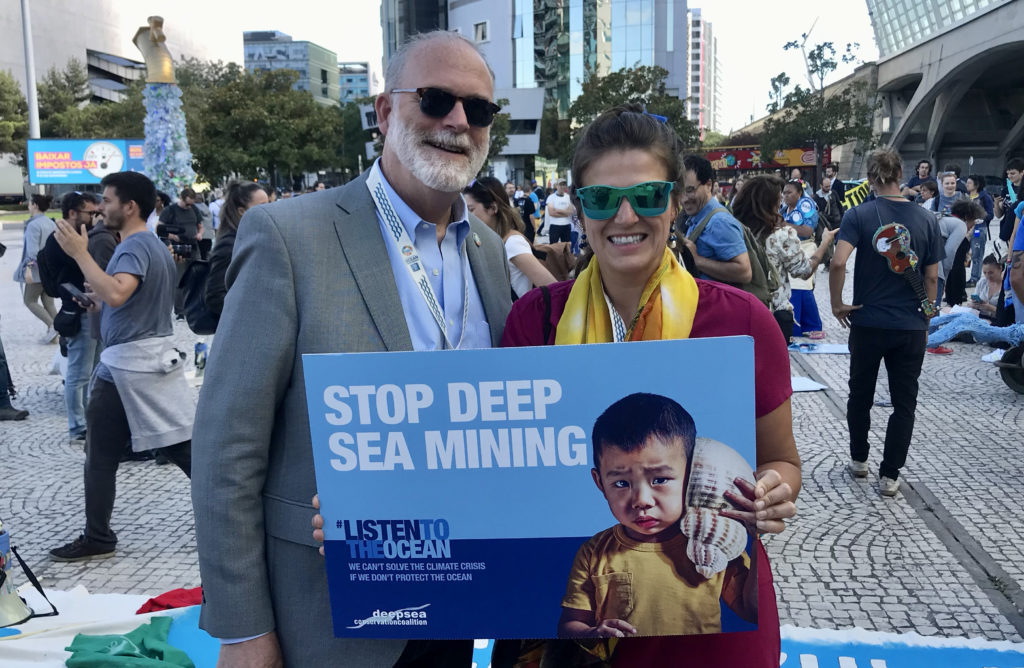
Spotlight on Ocean Acidification
The ocean plays an important role in climate regulation yet feels the effects of increasing carbon dioxide emissions. Thus, changing ocean conditions was an important topic. Ocean warming, deoxygenation, and acidification (OA) were featured in an Interactive Dialogue that brought together U.S. Climate Envoy John Kerry and TOF partners, including Global Ocean Acidification Observing Network co-chair Dr. Steve Widdicombe and Secretariat for the International Alliance to Combat Ocean Acidification Jessie Turner, as chair and panelist, respectively.
Alexis Valauri-Orton made a formal intervention on behalf of TOF, noting our ongoing support for the tools, training, and support that enable increased ocean acidification monitoring in the regions that most benefit from these data.
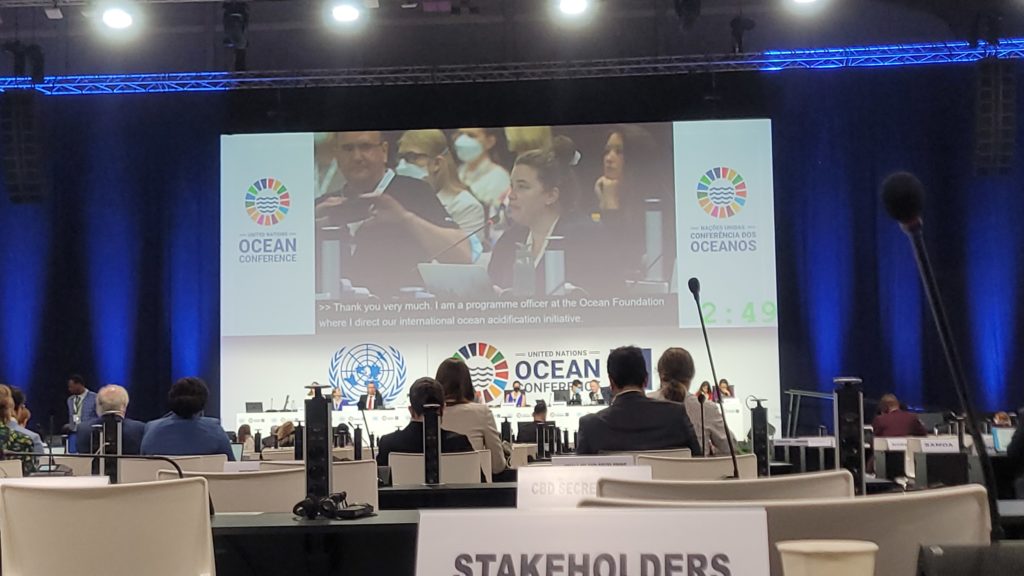
Accessible Ocean Action Worldwide
TOF was involved with several virtual events that were available to participants in the conference from around the world. Frances Lang presented on behalf of TOF on a virtual panel alongside esteemed panelists from Edinburgh University, Patagonia Europe, Save The Waves, Surfrider Foundation, and Surf Industry Manufacturers Association.
The event, organized by Surfers Against Sewage, brought together leading campaigners, academics, NGOs, and water sports representatives to discuss how grassroots action and citizen science can be used to influence local decisions, national policy, and the international debate to protect and restore our seas. The speakers discussed the importance of accessible ocean action for all levels of society, from coastal data collection led by community volunteers to K-12 marine education driven by partnerships and local leadership.
TOF also organized a bilingual (English and Spanish) virtual event focused on reducing climate change impacts through restoration of marine and coastal ecosystems. TOF Program Officer Alejandra Navarrete facilitated a dynamic conversation about implementing nature-based solutions on a regional scale and at the national level in Mexico. TOF Program Officer Ben Scheelk and other panelists shared how mangroves, coral reefs, and seagrasses provide important ecosystem services for climate change adaptation and mitigation, and how blue carbon restoration is proven to recover ecosystem services and associated livelihoods.
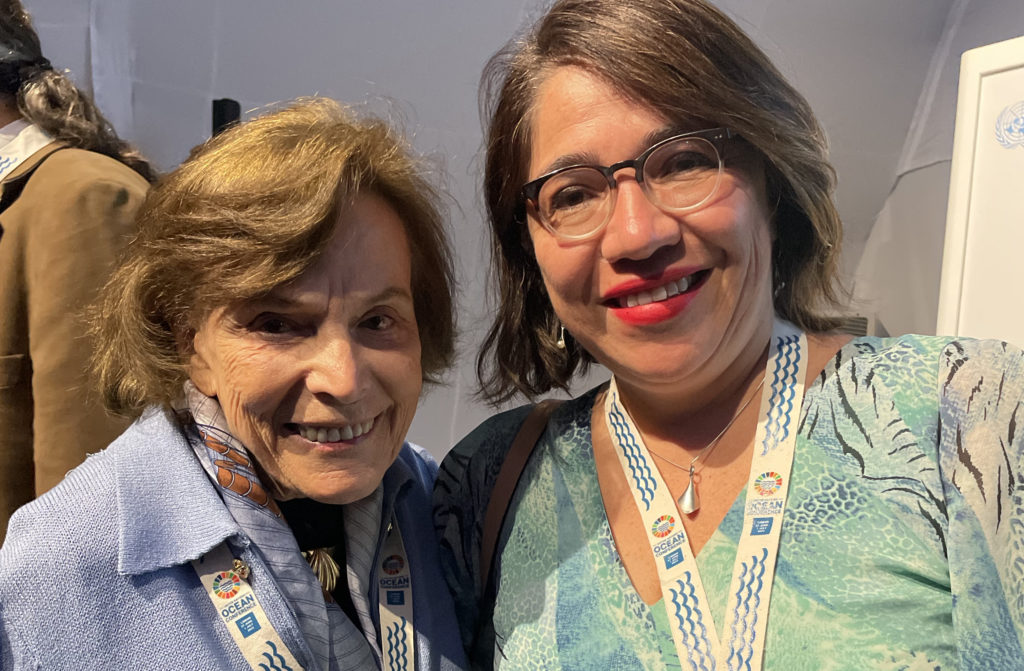
High Seas Ocean Governance
Mark J. Spalding, in his role as Sargasso Sea Commissioner, spoke at a side event focused on the SARGADOM project for “Hybrid governance in the High Seas”. ‘SARGADOM’ combines the names of the project’s two focus sites – the Sargasso Sea in the North Atlantic and the Thermal Dome in the Eastern Tropical Pacific. This project is financed by the Fonds Français pour l’Environnement Mondial.
The Thermal Dome in the Eastern Tropical Pacific Ocean and the Sargasso Sea in the North Atlantic are the two initiatives that are emerging as pilot cases at the global level aimed at developing new hybrid governance approaches, i.e. modes of governance that combine a regional approach and a global approach to contribute to the protection of biodiversity and ecosystem services in the high seas.
Ocean-Climate Nexus
In 2007, TOF helped co-found the Ocean-Climate Platform. Mark J. Spalding joined them on the 30th of June to talk about the need for an International Panel for Ocean Sustainability to allow for the assessment of the current and future state of the ocean in a manner similar to the International Panel on Climate Change. Immediately after this, the Ocean-Climate Platform hosted a discussion of Oceans of Solutions to showcase ambitious ocean initiatives that are accessible, scalable, and sustainable; including TOF’s Sargassum Insetting efforts, which Mark presented.
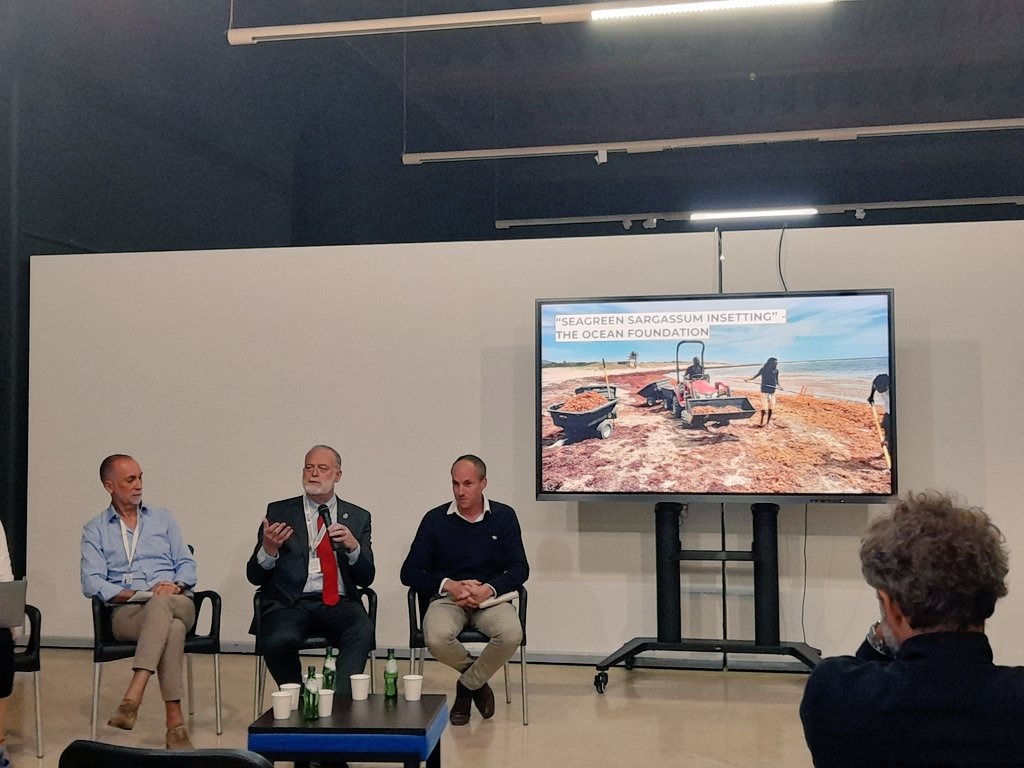
As often happens at these large gatherings, the smaller unscheduled and ad hoc meetings were tremendously helpful. We took advantage to meet with partners and colleagues throughout the week. Mark J. Spalding was one of a group of ocean conservation NGO CEOs who met with the White House’s Council on Environmental Quality, and the Director of the White House Office of Science and Technology. Similarly, Mark spent time in “High Level” meetings with our partners at The Commonwealth Blue Charter to discuss a fair, inclusive and sustainable approach to ocean protection and economic development.
In addition to these engagements, TOF sponsored a number of other events and TOF staff facilitated critical conversations around plastic pollution, marine protected areas, ocean acidification, climate resilience, international accountability, and industry engagement.
Outcomes and Looking Forward
The theme of the 2022 UN Ocean Conference was “Scaling up ocean action based on science and innovation for the implementation of Goal 14: stocktaking, partnerships and solutions.” There were notable achievements related to this theme, including increasing momentum and attention paid to the perils of ocean acidification, the restorative potential of blue carbon, and the risks of DSM. Women were an undeniably powerful force throughout the conference, with female-led panels standing out as some of the most vital and passionate conversations of the week (TOF’s own delegation consisted of about 90% women).
There were also areas recognized by TOF where we need to see more progress, improved access, and greater inclusivity:
- We noticed a chronic lack of representation on the official panels at the event, however, in the interventions, informal meetings, and side events those from lesser-resourced countries usually had the most substantive, actionable, and important items to discuss.
- Our hope is to see more representation, inclusivity, and action stemming from the large investments in marine protected area management, stopping IUU fishing, and preventing plastic pollution.
- We also hope to see a moratorium or pause on DSM in the next year.
- Proactive stakeholder engagement, and robust and substantive interaction with those stakeholders will be necessary for all attendees of the UN Ocean Conference to achieve everything we set out to do. For TOF, it is particularly clear that the work we are doing is vitally needed.
The ‘year of the ocean’ continues with the Mangrove Congress of America in October, COP27 in November, and the UN Biodiversity Conference in December. Throughout these and other global events, TOF hopes to see and advocate for continued progress toward ensuring the voices of not only those with the power to make change but also those who are most affected by climate change and ocean destruction are heard. The next UN Ocean Conference will take place in 2025.
